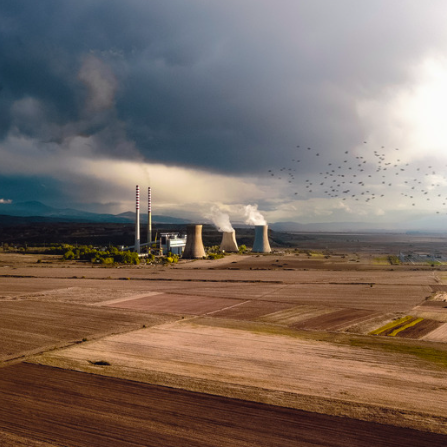On June 29th, Florida Governor Ron Desantis signed a bill allowing the study of radioactive waste to pave Florida roads. The material is called phosphogypsum and is created as a by-product of fertilizer production. The bill expands the list of recyclable construction materials with phosphogypsum joining construction steel, glass, and recycled mixed-plastic material. Yet unlike the other materials on this list, phosphogypsum could have potentially devastating effects on the health of Floridians and the environment in Florida.
What is phosphogypsum?
According to the United States Environmental Protection Agency, phosphogypsum comes from phosphate rock, which has dangerous levels of radioactive chemicals uranium, thorium, and radium. Phosphogypsum is the waste of dissolving phosphate rock in an acidic solution, meaning it has the same radioactive components. However, phosphogypsum is more radioactive than phosphate rock due to the waste being more concentrated. Phosphogypsum is placed into stacks after fertilizer production. Due to the lobbying of fertilizer companies, the Florida law potentially allows the use of these stacks in construction.

Why is phosphogypsum dangerous?
Phosphogypsum’s concentration of radioactive chemicals is dangerous to both the environment and the health of those exposed to the chemicals. Radon, the gas emitted by phosphogypsum as a product of these chemicals, is the “number one cause of lung cancer among non-smokers,” according to the EPA. As a result, the EPA implemented a series of safety protocols to distance people from Radon. Phosphogypsum is placed in stacks to limit radon exposure. However, even this may result in the material running into local groundwater. The EPA must still grant approval for using phosphogypsum in the construction of roads before any building project proceeds. If the health impacts of using this material in construction are equal to the effects of phosphogypsum stacks, then the EPA is likely to approve the construction.
Since the EPA must approve the use of phosphogypsum in road construction after a study of its impacts, the danger is yet to be determined. However, Florida has a history of phosphogypsum having environmentally detrimental effects. As CBS News explains, the last discussion of phosphogypsum arose in 2021 after the collapse of a waste reservoir in Piney Point containing phosphogypsum. Since the chemicals seeped into Tampa Bay, the disaster was a factor in a red tide event, harming local wildlife. With recent history in mind, conservation groups across Florida warn of the bill’s potentially disastrous impacts. Yet despite this history, the state has decided to move forward with this bill.
What happens next with radioactive waste?

While the bill was signed into law, the Department of Transportation will not immediately begin paving roads with the material. Instead, the department is now authorized with the bill to “undertake demonstration projects” to ascertain phosphogypsum’s “feasibility as a paving material.” The law requires the department to study if this material is suitable for the use of road construction. The construction of roads using this material will depend on the results of this study. In the meantime, the signing of this bill sets a dangerous precedent for the use of toxic materials in construction in the State of Florida.








